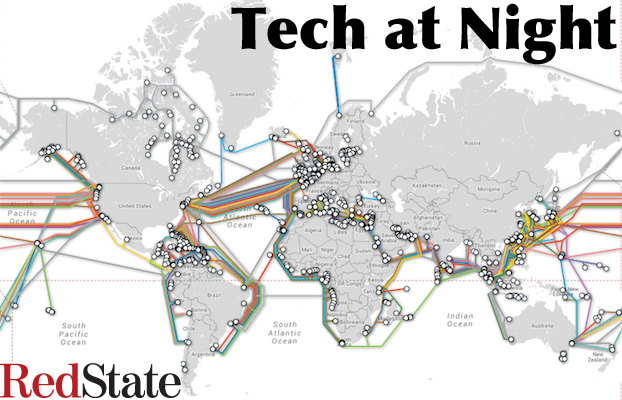
I think many people know that Google has been developing technology to be able to detect known child pornography images. You see, child pornographers tend to ‘trade’ photos around, so the same photos end up being possessed by many of them. Therefore, there is value in creating software that can create ‘hashes’ or a unique mathematical fingerprint, of known images captured from previous criminals. Google has been working on this.
Well, it turns out they’re using it to make sure nobody’s using their resources to break the law by distributing child pornography using their servers.
Continue reading »

Email technology has changed over the years, and some people hope you don’t understand why, and how that matters for the issues of the day. So tonight I’m going to discuss how the technologies have changed, and why that influences the debates over both the Electronic Communications Privacy Act (ECPA) and the IRS missing emails scandal.
Continue reading »

While I don’t share the zeal some have for ECPA reform, to change the requirements to search emails on third party servers, I think the whole project is at worst harmless so long as FISA is preserved.
As much as a broad free trade area would be great, I begin to wonder whether the Trans-Pacific Partnership has been hijacked by special interests, and so must fail. I mean, this “threat to Internet freedom” stuff is likely overblown, but the treaty is likely being used to try to ram stuff through that could never pass as ordinary legislation.
Continue reading »

The argument for the ECPA (email warrant law) reform in a nutshell: because a lot of people store important data on other people’s servers, we need to tighten warrant laws for that data. I don’t buy the necessity, especially with FISA also under attack. If terrorists have data on Google’s servers, I want Google to be able to hand over that data. But this idea is popular and I expect it to pass eventually.
I called it: China cut Bitcoin’s access to the Chinese banking system, just as the US cut online gambling access to the US banking system (and like the US did after the freezing of Mt. Gox’s Dwolla account. Result: Bitcoin prices are tumbling, even if firms like Bank of America can’t assume it’s going to go away.
I wish it would though, since Bitcoin continues to be a magnet for crime.
Continue reading »

This will bet he only edition of Tech at Night this week. I was out of it Monday night, and this weekend I’m traveling to Denver for SGDQ 2013. I will be there to give live on stream commentary for the Legend of Zelda and Zelda II runs, so watch and donate if you care to.
House Democrats, together with a few libertarians, tried to restrict the NSA, and failed. I’m fine with this.
In other news, Google is accused of Net Neutrality violations for trying to restrict servers on Google Fiber. Heh. If people can run servers on Google Fiber then they’re going to have problems quickly. So this is a very interesting case.
Continue reading »

Update on ECPA reform: Last time I commented that it was problematic to give such strong protections to terrorist emails on American corporate-run servers. Well, it turns out ECPA reform backers are listening, and have pointed out to me that FISA will work just fine in those cases. Fair point. I still don’t think the law makes sense, but at least it’s not too terribly harmful.
This tutorial to “NSA-proof your email” is all wrong. All wrong. You NSA-proof your email by using end-to-end encryption, not by using transport level encryption. Hosing your own email is a great idea, mind you (it makes the ECPA-related issues moot), but NSA can still spy on you all they want if you follow that webpage’s instructions.
Continue reading »

Russia is reacting to Snowden’s leaks. One wonders what he’s telling them.
Here we go again. Having failed to pass the preferred bill of Joe Lieberman’s and Jay Rockefeller’s last time, Senate leaders are trying again on a cybersecurity bill. Any bill Senate Democrat leaders support is suspect, given their history of the Internet Kill Switch.
There’s room for legislation, but by default I oppose their plans to expand the scope of government online.
Continue reading »

You know what happens when you use other people’s email services, such as Yahoo or Google? You become especially vulnerable to attacks on your privacy, including the ability of the government to search your email provider’s computers. The ECPA is a red herring, really. Sure, we an tweak it, but when you use somebody else’s computer, I’m not sure you should have much of an expectation of privacy.
Hey, look: While Pandora spends money lobbying to try to change the law to rig the system, Apple is negotiating to get what it wants for Internet radio like a free market participant should.
Continue reading »